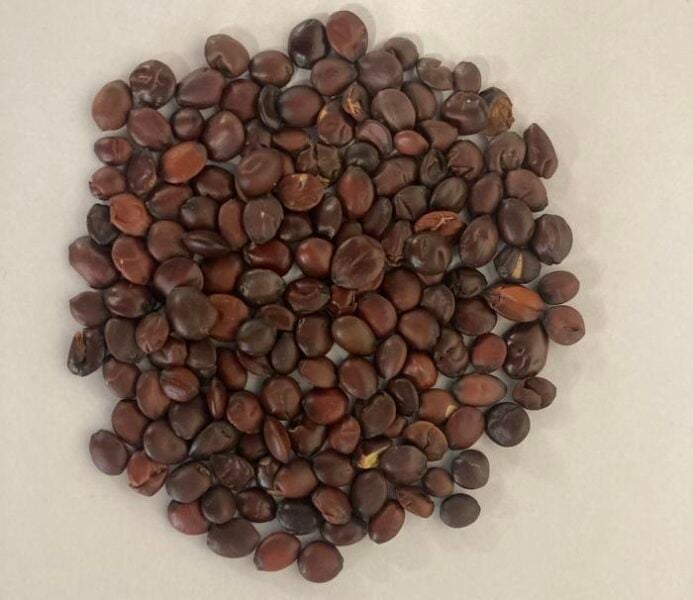Summary: Scientists have discovered that a traditional Chinese medicine derived from jujube seeds shows remarkable promise in preventing and potentially reversing multiple types of dementia. In groundbreaking research, simply crushing these seeds into powder proved more effective than traditional extraction methods, successfully improving memory and motor function in mice with various neurodegenerative conditions. Most surprisingly, the treatment even restored aged mice’s cognitive abilities to levels matching young mice.
Journal: eLife, September 13, 2024, DOI: 10.7554/eLife.100737. |Reading time: 6 minutes
A Simple Seed’s Profound Impact
In an era dominated by high-tech pharmaceutical research, a team of Japanese scientists has made a remarkable discovery about a humble seed used for centuries in traditional Chinese medicine. Their findings suggest that Zizyphus jujuba seeds, when simply crushed into powder, could offer a powerful weapon against neurodegenerative diseases including Alzheimer’s, Parkinson’s, and other forms of dementia.
Led by Professor Takami Tomiyama at Osaka Metropolitan University’s Graduate School of Medicine, the research team found that this traditional remedy, known as Zizyphi spinosi semen (ZSS), demonstrated surprising effectiveness in treating multiple types of dementia in mouse models. Most intriguingly, the simplest preparation method – crushing the seeds into powder – proved more effective than traditional hot water extraction methods used in Chinese medicine.
Beyond Traditional Extraction
The research team’s breakthrough came when they compared different preparation methods of the jujube seeds. While traditional Chinese medicine typically involves creating hot water extracts, the researchers discovered that simply crushing the dried seeds into powder produced superior results. This crushed powder not only improved cognitive and motor functions in mice with various forms of dementia but also showed remarkable effects in aging mice without disease.
“The results of our research will hopefully make it possible to develop dementia prevention products that middle-aged and elderly people can take at their own discretion,” Professor Tomiyama noted.
Multiple Forms of Dementia Targeted
The study’s scope was impressively broad, testing the treatment’s effectiveness against multiple forms of dementia. The crushed seed powder showed positive results in mouse models of:
- Alzheimer’s disease
- Frontotemporal dementia
- Parkinson’s disease
- Dementia with Lewy bodies
In each case, the treatment improved both cognitive and motor functions, while reducing the buildup of problematic proteins associated with these conditions.
Turning Back the Clock
Perhaps the most striking finding was the treatment’s effect on normal aging. When administered to elderly mice without dementia, the crushed seed powder:
- Restored cognitive function to levels matching young mice
- Increased production of brain-derived neurotrophic factor (BDNF)
- Enhanced the creation of new neurons
- Reduced cellular aging markers
- Decreased oxidative stress in the brain
Looking Ahead with Caution
While these results are promising, they come with important caveats. The research was conducted in mice, and clinical studies will be needed to confirm whether these benefits translate to humans. However, the long history of these seeds’ use in traditional Chinese medicine suggests they may be safe for human consumption.
Glossary
Neurodegenerative diseases: Conditions characterized by progressive loss of nerve cell function or death, affecting movement or mental functioning.
BDNF (Brain-derived neurotrophic factor): A protein that supports the survival of existing neurons and encourages the growth of new neurons and synapses.
Cellular senescence: A state where cells stop dividing but remain metabolically active, often associated with aging and age-related diseases.
Oxidative stress: An imbalance between free radicals and antioxidants in the body, potentially leading to cell and tissue damage.
Quiz
- What preparation method of jujube seeds proved most effective in the study?
Answer: Simple crushing into powder - How many different types of dementia did the treatment show effectiveness against?
Answer: Four (Alzheimer’s, frontotemporal dementia, Parkinson’s disease, and dementia with Lewy bodies) - What happened when the treatment was given to elderly mice without dementia?
Answer: Their cognitive function was restored to levels similar to young mice - What protein’s production increased with the treatment?
Answer: Brain-derived neurotrophic factor (BDNF)
Enjoy this story? Get our newsletter! https://scienceblog.substack.com/


